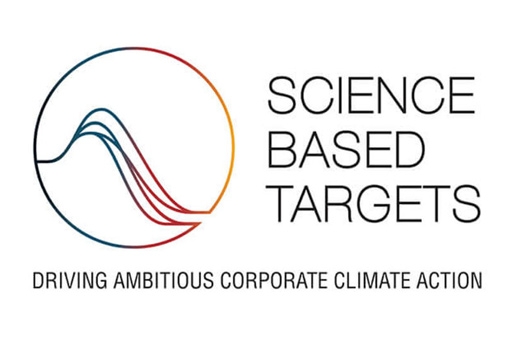La Banque Postale is stepping up its decarbonisation strategy
In connection with its ambitious greenhouse gas emissions reduction targets and in addition to its exit from coal by 2030, La Banque Postale is also announcing a complete withdrawal from fossil fuels (oil and gas) by the same date.
The Science Based Targets initiative, led by four large international organisations – the Carbon Disclosure Project (CDP), the World Resources Institute (WRI), the United Nations Global Compact (UNGC) and the World Wide Fund for Nature (WWF) – has validated La Banque Postale’s 2030 decarbonisation pathway [1] and has recognised it as compatible with the goal of keeping global warming to well below 2ºC as laid down by the Paris Agreement.

This pathway covers operations specific to La Banque Postale (carbon emissions from its real estate assets and fleet of vehicles, type of fuel used, etc.) and impacts linked to its investing and borrowing activities with its customers.
As a result, La Banque Postale is the first European bank and one of the first three financial institutions in the world to be recognised by the SBTi for its climate action.
The SBTi assesses and verifies companies’ greenhouse gas emissions reduction goals and, building on a scientific approach, ensures that the commitments made by these companies are compatible with the Paris Agreement.
La Banque Postale welcomes the SBTi’s announcement made this morning that it has validated its pathway to achieve carbon neutrality by 2040. Today, we are the first European bank and one of the first financial institutions worldwide to have a decarbonisation strategy that is in line with the Paris Agreement and that has been validated according to a scientific approach. The climate emergency requires us to accelerate, which leads us to a complete withdrawal from fossil fuels by 2030 at the latest. Bolstered by our “civic DNA”, our ambition is to strengthen our international leadership, recognised by extra-financial agencies. We also want to be a “spearhead” laboratory for the banking sector and to drive an in-depth transformation of our business models towards a just transition, of which respect for the planet’s limits is a key component. In the coming period, we are determined to support the fossil fuel industry in its own transition”.
Philippe Heim
Chairman of La Banque Postale's Executive Board
The financial sector plays a significant role in decarbonizing the economy and driving corporate climate action. We need asset managers, banks, insurers, and others to align their climate targets to the global climate goals in a robust and transparent manner. We’re very excited to announce the first batch of financial institutions with science-based climate targets, including La Banque Postale, and believe this momentum will encourage others to join this growing movement.
Alberto Carrillo Pineda
Managing Director of the SBTi
Reaching this ambitious goal comes down to reducing the direct carbon footprint of the Bank, of its loan and investment portfolios and to supporting energy transition efforts in France through responsible financing. As such, La Banque Postale is committed to:
cutting its greenhouse gas emissions by 46.2% by 2030 (Scopes 1 & 2) compared to 2019;
continuing to obtain 100% of the energy we use from renewable sources until 2030;
achieving science-based targets for 85% of its loan and investment portfolio by 2030 (mortgages, commercial real estate, energy project financing, equities, bonds and long-term loans to businesses).
Since 2017, La Banque Postale has been committed to the Science-Based Targets initiative [2], which aims to define a pathway for reducing greenhouse gas emissions in line with the objectives of the Paris Agreement. Alongside the SBTi, it played a role in co-developing a common methodology for the financial sector. La Banque Postale will keep investing in the development of future methodologies in line with its objective of being a "spearhead" laboratory for decarbonization.
La Banque Postale is committed to leaving fossil fuels behind by 2030, a major milestone of its low carbon strategy
La Banque Postale is also the first bank worldwide to commit to a complete withdrawal from the oil &gas industries by 2030. This ambitious commitment, made after consulting with our NGO partners, is an essential step in meeting its SBTi-certified climate trajectory. It is also aligned with the messages delivered by the International Energy Agency, according to which ceasing to finance new oil and gas projects is a prerequisite to achieving carbon neutrality.
In practical terms, this means that La Banque Postale is changing its policy towards producers of both conventional and non-conventional oil & gas, (shale oil and gas, deep water and Arctic drilling) and companies involved in the development of infrastructure in these sectors. Its commitment covers upstream activities (production, exploration) as well as midstream activities associated with transmission infrastructures (such as pipelines or Liquefied Natural Gas storage facilities).

For players in the oil and gas sector, La Banque Postale is more specifically committed to:
refraining from financing oil and gas energy projects;
no longer providing financial services (loans, account management, payment instruments, factoring, etc.) and managing legacy services and existing assets until 2030;
not investing in and gradually divesting from these businesses until 2030;
not supporting businesses actively involved in lobbying on behalf of the oil and gas industry or those that slow or block efforts to exit these sectors by 2040.
Consistent with its commitment to a just transition and shareholder advocacy, La Banque Postale will continue to actively support and finance energy companies committed to a strong transitory roadmap in line with the Paris Agreement, with a clear pathway and intermediate steps.
Concrete progress towards sustainable finance
This validation by the SBTi is the result of La Banque Postale’s ambitious, long-term strategy towards sustainable finance, which builds on three key pillars:
Commitments : after having achieved carbon neutrality within its operational scope in 2018, La Banque Postale is committed to reaching a zero net emissions target by 2040 for all its banking activities – in other words, 10 years before the deadline set by the European institutions and the Net Zero Banking Alliance, in application of the Paris Agreement.
Offers promoting a just transition: through its range of products and services, La Banque Postale pays close attention to limiting any social divides by supporting all its customers in their ecological transition:
· For individual customers for instance, since September 2021, it has been offering impact consumer loans – available to everyone – to buy a car where the customer’s interest rate is reduced for electric or hybrid vehicles and where the carbon emissions during the first two years of use are offset. Similar schemes allow customers to renovate their homes irrespective of their income. Finally, the Bank is also offering clients investment solutions made up of 100% SRI funds.
· For corporate and local public sector clients, it is supporting their energy transition from carbon accounting to green loans for project finance.
Employees, who are key drivers of this transition: La Banque Postale has mobilised all its employees to help build its corporate purpose. They have also been involved in the citizen consultation launched last May to broaden the range of green products offered by the Bank. More than 30,000 employees have participated in this scheme, which gathered more than 800 concrete proposals to further develop the Bank’s civic involvement.
(1): Scopes 1 and 2 and several Scope 3 portfolios
(2): The Science-Based Targets initiative (SBTi) was inspired by the United Nations Global Compact, the World Wide Fund for Nature (WWF), the World Resources Institute (WRI) and the Carbon Disclosure Project (CDP). Its aim is to develop approaches and define SBT criteria (science-based targets) for each sector. It also validates the targets which companies submit to it. The time horizon for achieving these objectives must be 5 to 15 years and cover Scopes 1 and 2, in line with the GHG Protocol Corporate Standard. If a company’s Scope 3 emissions exceed 40% of its total emissions, the targets must also cover Scope 3. The SBT approach relies on the alignment of greenhouse gas reduction targets with climate science data. It is focused on the amount of emissions that must be reduced to reach the Paris Agreement climate objectives limiting global warming to 1.5°C.
